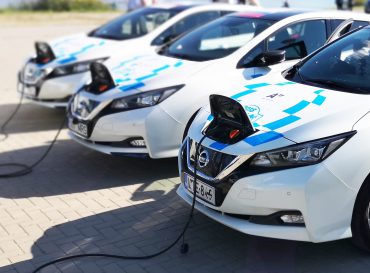We think it’s fair to say that many, if not most Liftshare members have struggled to find a parking space at least once during their life on the road. From trips into town at the weekend, to getting parked at a busy supermarket or football match, being unable to find a space is simply stressful business.
But one company within the sharing economy’s diverse hub of kindness promises to banish the hell of parking through collaborative means. The solution is ingenious and can help make your life so much easier – as it is believed that the average driver will spend 106 hours searching for parking spaces in their lifetime.
It’s called JustPark, and we recently spoke the site’s founder Anthony Eskinazi to discuss what inspired its creation and to get more insight into how the service works.
The process is simple: members enter a city or address where they’d like to get parked, add a date range for length of stay and the site throws back a long list of people offering spaces on their street or driveway, along with multi-tier car park information and more. Simply pick a price that works for you and book the space before it’s gone.
We ask Eskinazi to shed light on how the JustPark concept began, and he tells us, “I was on a visit to San Francisco back in 2006 and struggling to find parking near a baseball stadium when I came up with the idea behind ParkatmyHouse, as it was known back then.
“I thought it would be so convenient if I could have just parked in one of the many spare driveways rather than using the commercial car park. Earlier this year, after building up a userbase of over half a million drivers, we rebranded as JustPark.”
He emphasises that the aim is to make surplus off-street parking spaces available to all drivers in a bid to reduce stress and costs commonly associated with on-street parking. Homeowners can offer up driveways or garages they don’t use to boost their own income with spaces that are up to 50% cheaper than existing spaces, while schools and churches have used the service to generate new funds for the community.
Interestingly, Eskinazi adds that parking has suffered from a lack of innovation and that through JustPark, he aims to take the industry out of the “dark ages” by utilizing new technology to transform the parking experience.
“The concepts behind JustPark and the sharing economy in general have been thoroughly embraced by the public,” he continues. “We now have over 100,000 spaces listed in the UK alone, with growing userbases in the US and Australia, and over half a million users worldwide.
“People renting out parking spaces at homes, small businesses, churches, pubs and schools generates over £5 million a year income for these families, organisations and communities. But I don’t think this is surprising. Sharing is one of mankind’s most ancient behaviours; people have cooperated and shared resources with one another since the dawn of time.
“Today, the technology we have available has helped this practice to resurface and become more efficient, allowing total strangers to trust each other in transactions. This is great for rebuilding our sense of community and encouraging people to be micro-entrepreneurs to the benefit of others.”
The rise of the sharing space is evident in JustPark’s own growth, as in little over a year it has grown from a team of four to close to 30 full-time employees. We ask Eskinazi to comment on why he feels the public has started to embrace sharing in the mainstream, and how this reflects an attitude shift in society.
“I don’t think it takes a special kind of person to use these kind of platforms,” he replies. “Anyone can do it, it just takes a bit of trust and bit of enterprise. Perhaps the first time you let a complete stranger park in your driveway or ride in your car, you may be a little nervous, but people soon realise that these systems actually work remarkably well.”
Like Liftshare, JustPark is intensely keen on provoking social collaboration between users, and Eskinazi agrees that empowering users to leave customer feedback and break down social isolation by talking as they share, is a positive bonus of the sharing economy. Both sites also care deeply about the reduction of carbon on roads.
We close by asking Eskinazi to comment on how important the sharing economy is today, and he suggests that it was kicked into gear after the last financial crisis, ushering in what he refers to as a ‘pay-as-you-live lifestyle.’ This takes away emphasis on owning goods and services, and encourages new forms of affordable living in their place.
He concludes, “People no longer need to fork out loads of money on ownership of goods such as cars or services such as car parking – instead, they can pay for things as and when they need them.
“By opening the door for everyday people to become micro-entrepreneurs and trade directly with one another, the sharing economy is driving down costs and putting money into households across the country and the globe.
“About 25% of British adults are sharing online, with this number rising as more and more people discover the benefits. Current global revenues for the sharing economy of £9 billion per year are projected to reach £230 billion by 2025, and sharing economy businesses are predicted to have a 50% market share in key sectors such as holiday accommodation (with companies such as Airbnb) and car-sharing/car rental (with companies such as Liftshare).
“People are recognising the value of this way of doing business, and the market is really growing rapidly. The sharing economy is the most significant evolution in business at the moment.”
Have you tried JustPark yet? It could just be the perfect companion service for all you Liftshare members out there. Give it a shot and let us know what you think.
Author liftshare
on
You might also like…
See how Liftshare can help your organisation



